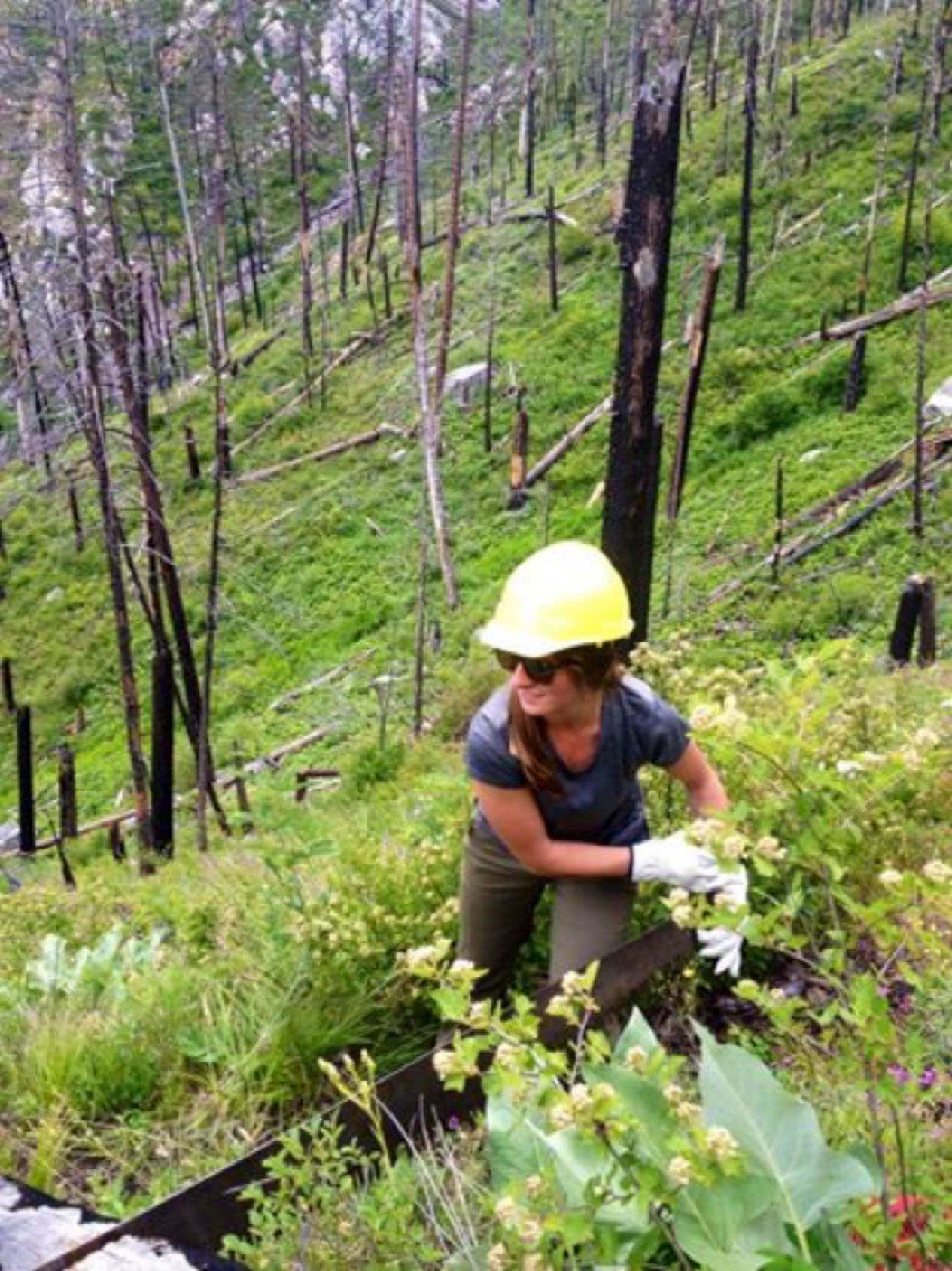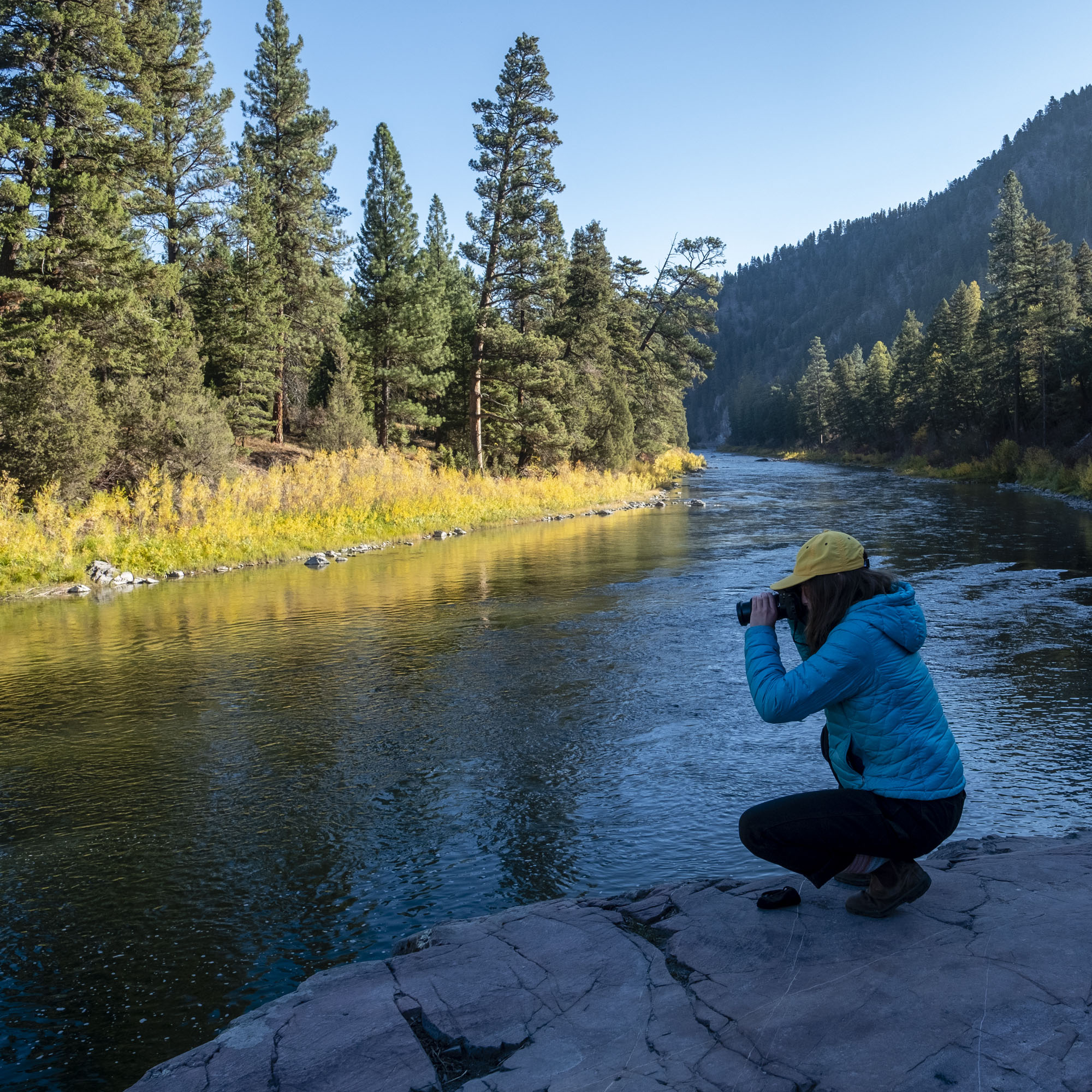Externship Guide

Laura Scheer, a 2015 graduate, flexes her upper body strength during her externship with the Wilderness Institute. She participated in the Institute’s citizen science program which gave her a unique window into how scientists collect data in the field and how that shapes policy.
ABOUT EXTERNSHIPS
A distinctive aspect of the graduate journalism program is its externship requirement. The externship provides students with practical insights into the operations of environmental science and natural resource companies, agencies, organizations or laboratories. The purpose is to "switch sides." Rather than working as reporters, editors, or communications specialists, students work as firefighters, field technicians, farmhands, lab assistants or contract laborers to name a few. By acting as participant observers, students build a deeper understanding of issues they will later cover.
Students must complete at least 240 hours of work to satisfy the externship course three-credit requirement. Typically they work full-time for 6-8 weeks during the summer between their first and second year. Part-time externships are possible, typically at 16 hours per week. Students can fulfill the requirement by working at one organization or they can break up their hours at several agencies.
Compensation for the externship is negotiated on an individual basis, depending on the nature of the work, labor rules, the student's skill set and the value he or she brings to the host organization. Students pay tuition and fees for the credits they earn through the externship, and a number of organizations choose to cover those registration costs.
The externship must be approved by the graduate program adviser. A learning agreement or work contract is then signed between the host and the extern. To receive credit, the student must register for JRNL 698 and provide written and signed proof of completion of 240 hours of work at the host organization. The course is graded on a credit/non-credit basis.
Forms are available below:
Students without a journalism background have the option to substitute part of their externship requirement with a media internship. For example, Abbey Dufoe, a 2015 J-School graduate, spent a summer at Backpacker Magazine in Boulder, CO. As a digital intern, she produced and wrote stories for the web under tight deadlines. She also honed other multi-media skills by assisting in video production. “I was immersed in the outdoor world in an office setting,” Dufoe said. “I built contacts who pointed me in the right direction when it was time to write my master’s project on avalanche deaths in the backcountry.”
Faculty is on hand to help students find an externship that fits their needs.
For her externship, student Nicky Ouellet spent her time assisting Montana Tech professor Martha Apple with her research on rare alpine plants in Glacier National Park.
